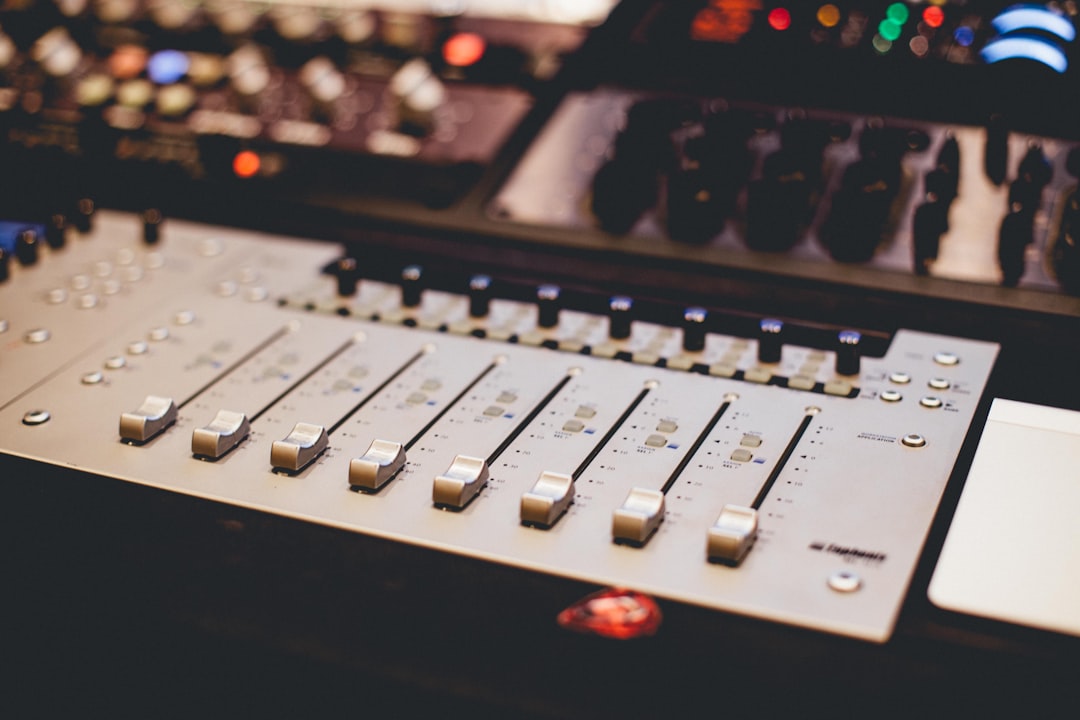As you delve into the world of AI-generated music, it’s essential to grasp the nuances of this rapidly evolving industry. The intersection of technology and creativity has birthed a new era in music production, where algorithms and machine learning models can compose, arrange, and even perform music. This innovation has not only democratized music creation but has also opened up a plethora of opportunities for aspiring entrepreneurs like yourself.
By understanding the landscape, you can position yourself strategically within this burgeoning market.
As you explore this field, you’ll discover various platforms and tools that cater to different aspects of music production.
Familiarizing yourself with these technologies will enable you to identify potential niches and gaps in the market that you can exploit. Moreover, understanding the ethical implications and challenges associated with AI-generated music will help you navigate this complex terrain responsibly.
Key Takeaways
- AI-generated music is a growing industry with potential for innovation and creativity
- Research your target audience and market to understand their preferences and needs
- Choose AI music generation software that aligns with your business goals and technical requirements
- Create a comprehensive business plan and budget to guide your operations and financial decisions
- Secure the necessary licenses and copyrights to protect your AI-generated music and avoid legal issues
Researching the market and target audience
Defining Your Target Audience
Are you targeting independent filmmakers who need affordable soundtracks for their projects? Or perhaps game developers who require unique audio experiences to enhance their games? By defining your target audience, you can tailor your offerings to meet their specific needs and preferences.
Analyzing the Competition
Analyzing competitors in the AI music space will provide valuable insights into market trends and consumer behavior. Look at what successful companies are doing and identify their strengths and weaknesses. This analysis will not only inform your business strategy but also help you differentiate your services from those already available.
Staying Ahead in a Competitive Landscape
By staying attuned to industry developments and consumer demands, you can position your business for success in a competitive landscape. This will enable you to respond to changing market conditions and stay ahead of the competition.
Choosing the right AI music generation software

Selecting the appropriate AI music generation software is a pivotal step in your journey. With numerous options available, it’s essential to evaluate each tool based on its features, ease of use, and compatibility with your creative vision. Some software may excel in generating melodies, while others might focus on rhythm or harmony.
As you explore these tools, consider what aspects of music creation are most important to you and your target audience. Additionally, take into account the learning curve associated with each software. While some platforms offer user-friendly interfaces that allow for quick experimentation, others may require a deeper understanding of music theory and composition.
As you weigh your options, think about how much time you’re willing to invest in mastering the software. Ultimately, choosing the right tool will empower you to create high-quality music that resonates with your audience and fulfills their needs.
Creating a business plan and budget
A well-structured business plan is essential for guiding your AI-generated music venture toward success. Start by outlining your business goals, mission statement, and the unique value proposition that sets you apart from competitors. This document will serve as a roadmap for your business, helping you stay focused on your objectives while also providing clarity on how to achieve them.
In tandem with your business plan, developing a comprehensive budget is crucial for managing your finances effectively. Consider all potential expenses, including software subscriptions, marketing costs, and any necessary equipment or studio space. Additionally, factor in projected revenue streams based on your pricing strategy and target audience.
By creating a realistic budget, you’ll be better equipped to make informed decisions that support the growth of your AI-generated music business.
Securing the necessary licenses and copyrights
Navigating the legal landscape of the music industry is vital for protecting your work and ensuring compliance with copyright laws.
Securing the necessary licenses for any third-party content will safeguard you against potential legal disputes down the line.
Moreover, consider registering your original compositions with copyright offices to establish ownership and protect your intellectual property. This step is particularly important in an industry where originality is paramount. By taking proactive measures to secure licenses and copyrights, you’ll not only protect your creations but also build credibility with clients who value professionalism and integrity.
Marketing and promoting your AI-generated music business

Establishing a strong online presence is crucial for attracting clients and building a loyal customer base for your AI-generated music venture. This can be achieved by creating a professional website that showcases your portfolio and services.
Building a Digital Footprint
Utilize social media platforms to engage with potential customers and share snippets of your work, allowing them to experience the unique soundscapes you create.
Content Marketing Strategies
In addition to digital marketing efforts, consider leveraging content marketing strategies such as blogging or creating video tutorials that highlight the capabilities of AI-generated music. By positioning yourself as an expert in the field, you can build trust with your audience while also driving traffic to your website.
Amplifying Your Reach
Collaborating with influencers or industry professionals can further amplify your reach and enhance your brand visibility.
Building partnerships and collaborations with artists and producers
Collaborations can significantly enhance your credibility and expand your reach within the music industry. By partnering with established artists or producers, you can tap into their networks while also gaining valuable insights into the creative process. These partnerships can lead to exciting projects that showcase the potential of AI-generated music in new and innovative ways.
When seeking collaborations, focus on building genuine relationships with artists who share your vision and values. Attend industry events, participate in online forums, or engage with musicians on social media platforms to foster connections. By nurturing these relationships over time, you’ll create opportunities for collaboration that can elevate both your work and that of your partners.
Providing customer support and maintaining quality control
As you grow your AI-generated music business, prioritizing customer support will be essential for fostering long-term relationships with clients. Ensure that you have clear communication channels in place for addressing inquiries or concerns promptly. Providing exceptional customer service not only enhances client satisfaction but also encourages repeat business and positive word-of-mouth referrals.
In addition to customer support, maintaining quality control over your music production process is crucial for delivering consistent results. Regularly review your compositions to ensure they meet high standards of quality before sharing them with clients. Implementing feedback loops where clients can provide input during the creative process can also enhance the final product while ensuring that their vision is realized.
By following these steps and remaining committed to excellence in every aspect of your AI-generated music business, you’ll be well-positioned to thrive in this dynamic industry. Embrace the challenges ahead as opportunities for growth and innovation, and let your passion for music guide you on this exciting journey.
FAQs
What is AI-generated music?
AI-generated music refers to music that is composed, produced, or performed with the assistance of artificial intelligence technology. This can include algorithms that create melodies, harmonies, and rhythms, as well as software that can mimic the sounds of various instruments.
How can I start a business selling AI-generated music?
To start a business selling AI-generated music, you will need to first develop or acquire the necessary AI technology to create the music. You will also need to consider copyright and licensing issues, as well as marketing and distribution strategies for selling the music to consumers or businesses.
What are the legal considerations when selling AI-generated music?
Legal considerations when selling AI-generated music include ensuring that you have the appropriate rights to use any samples or copyrighted material in the music, as well as obtaining the necessary licenses for distributing the music. It’s important to consult with legal professionals to ensure that you are in compliance with copyright and intellectual property laws.
How can I market and sell AI-generated music?
To market and sell AI-generated music, you can utilize online platforms and streaming services, as well as traditional marketing channels such as social media, advertising, and partnerships with other businesses or artists. It’s important to identify your target audience and develop a marketing strategy that effectively reaches them.
What are the potential challenges of starting a business selling AI-generated music?
Some potential challenges of starting a business selling AI-generated music include technological limitations, copyright and licensing issues, competition from traditional musicians and composers, and the need to educate consumers about the value of AI-generated music. It’s important to carefully consider these challenges and develop strategies to address them.




